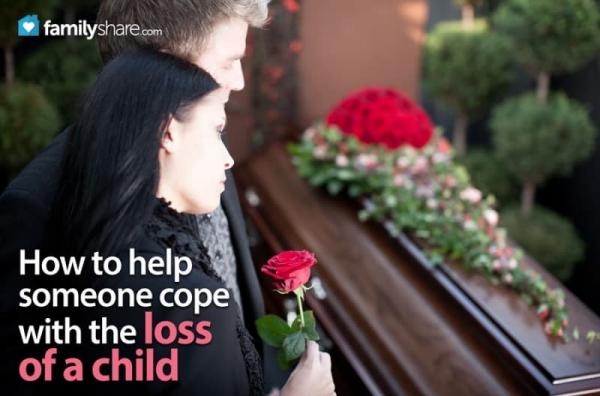
Parents expect to see their child grow to maturity. Ultimately, we expect parents to die first as their child continues the life cycle. When this is not the case, and a child dies, it is life altering for the parents and sometimes leads to a lifetime of grief.
As parents experience their grief of losing a child, they will go through the grief cycle based on work done by Elisabeth Kubler-Ross.
Denial and Anger
She states that the grief cycle generally starts with denial. This can be expressed with statements such as, "This cannot be happening to me."� This is a temporary coping skill until it is replaced with anger and thoughts of, "Why me?"� People can be angry with themselves, others, and often God.
Helping someone going through these stages requires understanding of the pain they are suffering. Do not try to make them accept everything that is happening. Instead, allow them to express the angry emotions they feel.
Bargaining and Depression
The next stage is bargaining where a parent may try to make a deal with God to bring their child back. This may be in the form of promising to stop a bad habit or doing something different with their life. Bargaining does not produce a sustainable solution so depression will set in.
This is a difficult stage as the person may express that they also want to die because of the emotional pain they are experiencing. Be understanding and accepting of their statements. Expressing desires to die, does not mean they truly want to die or are suicidal. Be aware of the difference and listen to what they say and how they say it. This will give you an idea of their intentions.
Acceptance
Finally, acceptance comes with expressions of, "It's going to be okay."� At this point they begin to work through their grief. Realize that people will often go back and forth through these stages of grief. They may re-experience various stages throughout the grief process.
There is no normal timetable for grief. However, if depression, anxiety or panic attacks last longer than six months, encourage them to seek professional help through a counselor or their primary care physician.
It is important to understand the needs of the parent by asking them what they need. Often times they will not know, but being there for them throughout their experience may be enough. The grief cycle is a normal reaction to loss. Have patience with and be kind with people going through this traumatic event and allow them to mourn.
As you can see, parental grief is complex and multi-layered. It is incredibly traumatic and leaves a parent with overwhelming emotional feelings and needs. Often times, support comes right away and lasts through the funeral. Remember, bereaved parents continue to be the parent of the deceased child.
For years to come, the parents may find various times of year more difficult as they remember their child and think about their one time dreams and wishes for that child. Some of these times may include holidays, birthdays, and days surrounding the anniversary of the death of their child. As they remember, they may also re-experience some of the stages of grief.
Being available throughout the grieving process will strengthen your relationship and help increase your empathy. Often times, people just need a listening ear. Encourage open communication about their feelings and emotions.

